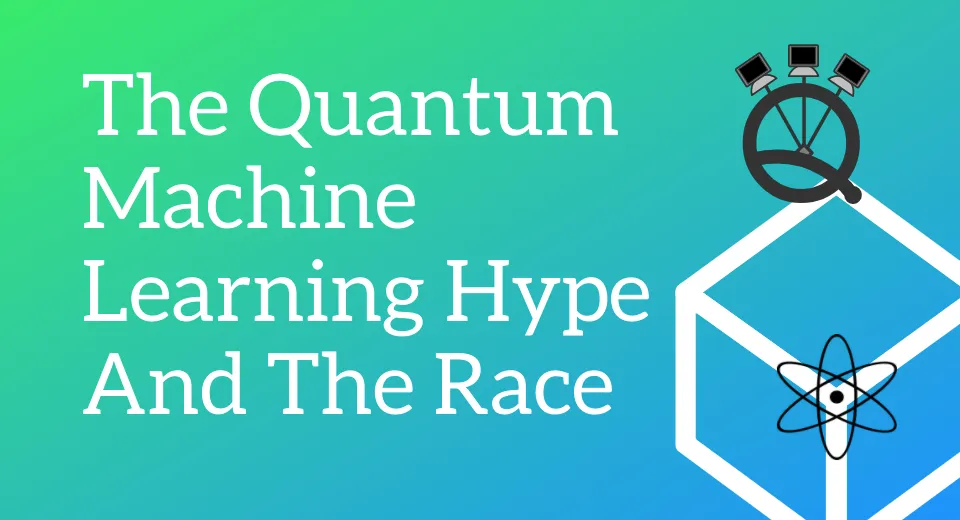
Despite being at a nascent stage, quantum computing managed to make a buzz in the industry. Solving the impossible within seconds is what quantum computing promises.
Tech giants, notably IBM and Google, recently proclaimed quantum supremacy.
The question is, will it change the world?
If quantum computers are here to solve complex problems, they will need quicker improvements.
Quantum Computers: What Are They?
Quantum computers are getting to be the upcoming frontiers displaying capabilities a conventional computer can't fix.Quantum computing works under the principle of quantum physics execute rapid calculations utilizing qubits and quantum pieces.
A complete comparison of what's present in today's traditional computers. A conventional classical computer operates on classical physics also performs calculations with pieces of all we understand. However, on the flip side, quantum computers may make calculations in seconds. Wherein in the event of a classical computer, it might take thousands of years to perform such calculations. From medication creation to weather forecasts and stock transactions, quantum computers will reevaluate everything.
For that reason, it shouldn't come as a surprise as to why the planet is rushing to construct its first quantum computer. Because of this, it can empower AI pros and AI professionals operating in the area to obtain maximum advantage from the technologies.
Google Chasing the Quantum Computing Race
In October 2019,'' Google stated in a post they've attained quantum supremacy.
Sycamore, a 54-qubit chip, is believed to execute a calculation within 200 minutes that would otherwise require 10,000 years to get the planet's strongest computer to attain. The accomplishment was viewed as a long-awaited landmark that was recently attained.
In technical terms, quantum computers may be trained just like a neural system. To be specific, a trained circuit from the quantum computer may be employed to identify the material of these pictures. This happens encoding these pictures into a tangible condition and taking appropriate dimensions.
Moving farther, quantum system learning uses quantum computing to the computation of machine learning algorithms. Now if we speak of quantum computing, some can even get confused.
While superposition describes if a quantum system is present in several states simultaneously. And entanglement is known as a powerful correlation happening involving the quantum particles.
Now quantum system learning functions on two theories: quantum hybrid and data quantum-classical models.
What’s Quantum Data?
It's also known as any kind of information that could happen in either a natural and an artificial quantum system. Such information are readily accumulated or created using quantum computers. The quantum information is supposed to exhibit entanglement and superposition that may result in linking likely distributions. These distributions may further need an extensive quantity of classical computational tools for preserving purposes.
In accordance with NISQ chips, the quantum information which is created are dumb and entangled before any kind of dimension occurs. Machine learning technique named Heuristic helps produce versions and take complete advantage of the helpful data from the noisy entangled data.
Additionally, the TensorFlow Quantum (TFQ) library provides elements which help create models that additional disentangle significance in quantum information.
This additional provides more chances for the present quantum algorithms to enhance and detect newer algorithms.
Discussing of those AI programming languages involved with quantum computing, we've got a number of the ordinary libraries, namely Pennylane and Qiskit.
Discussing of those AI programming languages involved in quantum computing, we've got some of the ordinary libraries, namely Pennylane and Qiskit.
Pennylane -- a library written in Python and can be easily incorporated with Qiskit. This tool helps perform parameter-shift amidst gradient descent optimization which leads to quantum gradient descent.
Qiskit -- an open-source library useful to quantum computers. Qiskit provides tools to create and manipulate quantum apps while conducting them on apparatus (prototyped). It functions by creating a quantum neural system with a parameterized quantum circuit via a hidden layer for the neural network.
What’s a Hybrid Quantum-classical Model?
A hybrid quantum-classical version reflects and generalizes information utilizing the quantum mechanical source. That is because, in the long run, most quantum chips are more inclined to stay noisy and little, thus rendering it hard for quantum versions to generalize quantum information using only the quantum chip.
To stay successful, NISQ chips will need to carefully work with classical co-processors. Are there some solutions that enable performing quantum system learning?
You'll see several services readily available, two of which the technician giants themselves supply (Google and IBM).
This tool package comprises development tools and programming languages. This chip can handle 8-, 12, and 24-qubit processors.
1. Xanadu -- is a hardware-based cloud started by a Canadian startup. This chip can handle 8-, 12, and 24-qubit chips.
2. Forest -- this service is offered by Rigetti Computing. This tool package comprises development tools and programming languages. This chip can handle 8-, 12, and 24-qubit processors.
3. IBM Q Experience -- an online platform which enables its users from the general public access to a certain pair of IBM's prototype quantum processor using the Cloud.
Despite being at a nascent stage, quantum computing managed to make a buzz in the industry. Solving the impossible within seconds is what quantum computing promises the world.







